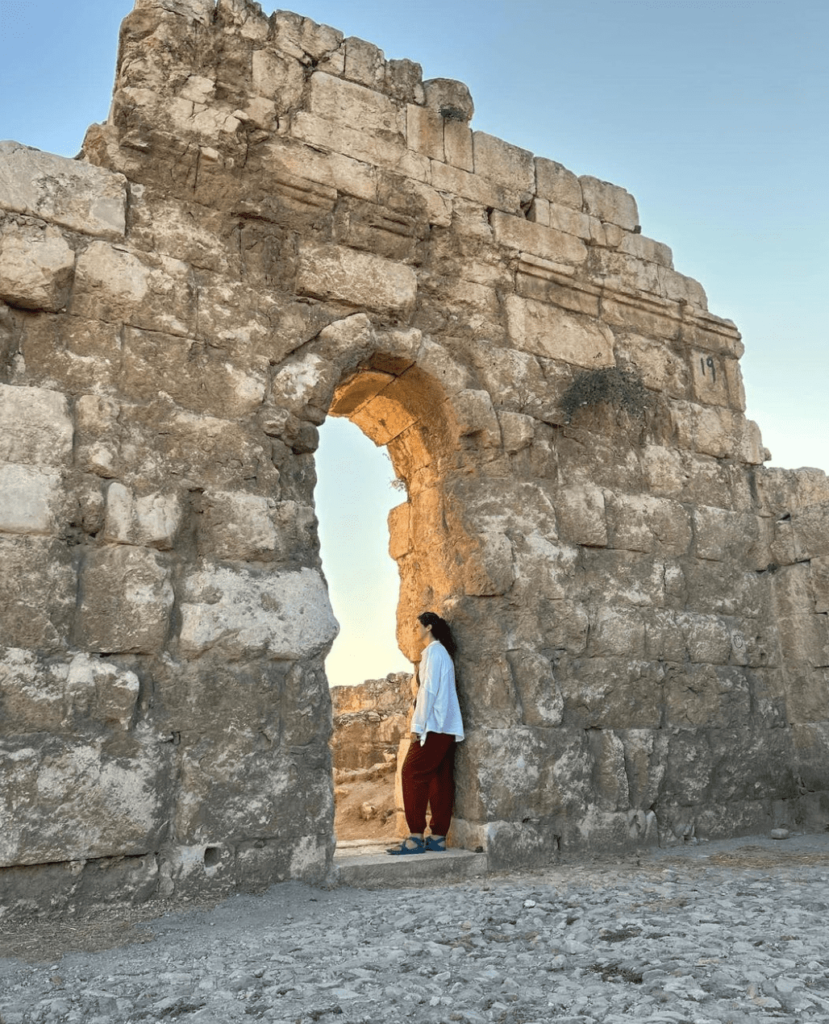
During a Qasid orientation session, they discussed the characteristics of the different levels of Arabic learning. They addressed the awe of level 1: the awe of seeing an “I” (alif) on page 1 and a (bah) on page 2. The awe of the new language carries you through level 1 and 2, so they said, with confidence that you will someday be fluent. Then, you come to level 3. This is where motivation slows down, and you start to lose your focus. Learning seems to plateau, and progress isn’t as clear. By levels 4 and 5, however, you see an upward swing again. You start to see how your work to learn Arabic will allow you to realize the goals that you set out to fulfill in deciding to learn Arabic. Sounds pretty great, right? Well, don’t get too excited ‘cause, you guessed it, I’m in level 3.
The director of Qasid, who himself learned Arabic starting as a teenager, described the experience of level 3, with anecdotes that spoke directly to my soul: “All I know how to say in Arabic is “my father is an engineer” even though my father ISN’T an engineer” and “I only know how to say that I’m lonely in Arabic but I actually have a great social life and support system.”
Learning a language is hard, and Arabic is one of the harder languages to learn. The US Foreign Service Institute estimates that it takes 2,200 hours to learn Arabic. As a comparison, they estimate that it takes about 600-750 hours to learn Spanish and 1,100 hours to learn Hebrew. To look at it another way, when talking to a Syrian friend about my continuing aspirations of learning Arabic several months ago, he responded that he didn’t know how anybody learned Arabic when there are 50 words for camel alone.
My Arabic trajectory has also been somewhat unique. I did four years of Arabic in high school, three quarters at UChicago, some sporadic tutoring sessions while working at SYE, and then intensive tutoring last summer. I did about an hour a day for my first semester at the University of Notre Dame, and then about 6 hours total the following semester.
ما شاء الله
I have been placed into level 3b. From the beginning, everything about that level felt scary and the imposter syndrome has been strong. Level 3, really? I had hoped that I might be placed into the level that works with the second al-Kitaab book, but now that I’ve done it, it’s scary. What if the placement interviewer got me confused with somebody else? I don’t think the interview misrepresented my skills, but what if it did? In discussing the placements, Qasid has generally indicated that while they are open to a conversation about placement, they are also pretty confident in the ability of their staff to place us at the right levels, and when push comes to shove, the Qasid instructors get the final say. When I brought up my hesitation with my professor a week in, she said that I was fine, but that if the course was too overwhelming for me, that I could switch.
Part of the issue, though, is that my education has been so atypical. I’m realizing how much I don’t know from al-Kitaab 1 and the first few chapters of al-Kitaab 2 — even though I’ve technically worked through them before. This summer has been incredibly beneficial in standardizing my education and filling in a lot of cracks (particularly with grammar!) so that I have a much stronger foundation. I also believe that this knowledge will be beneficial moving forward as I continue to learn Arabic on my own and with the support of the Syrian community that I have supported for so long. I am hopeful that this is a foundation – an essential foundation – to bring my Arabic skills to new levels.
ان شاء الله


